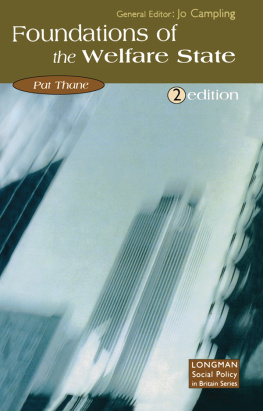First published in 1978 by Croom Helm Ltd
This edition first published in 2019
by Routledge
2 Park Square, Milton Park, Abingdon, Oxon OX14 4RN
and by Routledge
711 Third Avenue, New York, NY 10017
Routledge is an imprint of the Taylor & Francis Group, an informa business
1978 Croom Helm
All rights reserved. No part of this book may be reprinted or reproduced or utilised in any form or by any electronic, mechanical, or other means, now known or hereafter invented, including photocopying and recording, or in any information storage or retrieval system, without permission in writing from the publishers.
Trademark notice: Product or corporate names may be trademarks or registered trademarks, and are used only for identification and explanation without intent to infringe.
British Library Cataloguing in Publication Data
A catalogue record for this book is available from the British Library
ISBN: 978-1-138-61373-7 (Set)
ISBN: 978-0-429-45813-2 (Set) (ebk)
ISBN: 978-1-138-60206-9 (Volume 20) (hbk)
ISBN: 978-0-429-46978-7 (Volume 20) (ebk)
Publishers Note
The publisher has gone to great lengths to ensure the quality of this reprint but points out that some imperfections in the original copies may be apparent.
Disclaimer
The publisher has made every effort to trace copyright holders and would welcome correspondence from those they have been unable to trace.
THE ORIGINS OF BRITISH SOCIAL POLICY
EDITED BY PAT THANE
1978 Croom Helm
Croom Helm Ltd, 2-10 St Johns Road, London SW11
ISBN 0-85664-331-9
British Library Cataloguing in Publication Data
The origins of British social policy.
1. Great Britain Social policy
I. Thane, Pat
361.620941 HN386
ISBN 0-85664-331-9
First published in the United States 1978 by
Rowman and Littlefield
81 Adams Drive,
Totowa, New Jersey
Library of Congress Cataloging in Publication Data
Main entry under title:
The Origins of British social policy.
Includes bibliographical references and index.
1. Great Britain Social policy History
Addresses, essays, lectures. I. Thane, Pat.
HN 382.073 1978 309.14108 77-29132
ISBN 0-8476-6052-4
It is tempting to suggest that the history of social policy has been left too long in the hands of those whose primary interest is the study of the social policy and administration of their own day. Almost inevitably this has led to a kind of Whiggism, to looking at history as a process of evolution towards the relatively advanced condition of the present; to looking at it through the wrong end of the telescope, taking insufficient account of the difficulty of understanding past events in the very different context of their time.
That wise man, Richard Titmuss, did not make such an error. In 1955 he summed up the state of work in this subject, which has changed only a little since:
Some students of social policy see the development of The Welfare State in historical perspective as part of a broad, ascending road of social betterment provided for the working classes since the nineteenth century and achieving its goal in our time. This interpretation of change as a process of unilinear progression in collective benevolence for these classes led to the belief that in the year 1948 The Welfare State was established.
After pointing out that equity between citizens had not been achieved by 1955, that indeed the great bundle of activities which were popularly believed to comprise a Welfare State had created new inequalities, he concluded:
that today, is the real challenge to social policy and to those who, mistakenly, still look to the past for a solution.
The past he referred to was the mistaken one he had described. The aim of this collection of essays is to describe and interpret aspects of the history of social policy as something far more complex than a broad, ascending road of social betterment, but as a past out of which the continuing inequalities after 1948 seem unsurprising, since the policies we examine were less dedicated to removing them than the conventional picture assumes.
As John Brown points out, analysis of this presumed change has relied heavily upon T.H. Marshalls conception of progress in the twentieth century to a greater concern with social rights, from a belief in the permanence and rightness of class inequalities to a widespread belief in equal citizenship.
Of course, the idea of progress is not entirely irrelevant to the discussion of social policy changes. Anne Crowther shows that there were real improvements in workhouses between 1890 and 1929. Pat Ryan shows that the unemployed received some relief in the 1920s, as in the nineteenth century they did not, except, sometimes, from the Poor Law. The aged poor received pensions for the first time in 1908; family allowances were introduced in 1945. But with improved provisions for the poor went stricter distinctions between the morally deserving and undeserving, worthy of the original intentions behind the New Poor Law.














